I wanted to include notifications in my existing WinUI 3 application which uses Windows App SDK 1.1.4 and .NET 6 (The application does not and shall not use packaging / MSIX).
In order to achieve this, I tried to extract some code of an example application that I created with the "Template studio for WinUI" project template (assistant), see https://github.com/microsoft/TemplateStudio/ (The sample application also works with the 'unpackaged' deployment model).
The code which I extracted from the example application looks like this (the relevant parts should be the methods 'Initialize' and 'Show'):
public class AppNotificationService : IAppNotificationService
{
public AppNotificationService()
{
}
~AppNotificationService()
{
Unregister();
}
public void Initialize()
{
AppNotificationManager.Default.NotificationInvoked += OnNotificationInvoked;
AppNotificationManager.Default.Register();
}
public void OnNotificationInvoked(AppNotificationManager sender, AppNotificationActivatedEventArgs args)
{
// TODO: Handle notification invocations when your app is already running.
//// // Navigate to a specific page based on the notification arguments.
//// if (ParseArguments(args.Argument)["action"] == "Settings")
//// {
//// App.MainWindow.DispatcherQueue.TryEnqueue(() =>
//// {
//// _navigationService.NavigateTo(typeof(SettingsViewModel).FullName!);
//// });
//// }
App.MainWindow.DispatcherQueue.TryEnqueue(() =>
{
App.MainWindow.ShowMessageDialogAsync("TODO: Handle notification invocations when your app is already running.", "Notification Invoked");
App.MainWindow.BringToFront();
});
}
// EXCEPTION IN THIS METHOD
public bool Show(string payload)
{
var appNotification = new AppNotification(payload); // COM EXCEPTION HERE
AppNotificationManager.Default.Show(appNotification);
return appNotification.Id != 0;
}
public NameValueCollection ParseArguments(string arguments)
{
return HttpUtility.ParseQueryString(arguments);
}
public void Unregister()
{
AppNotificationManager.Default.Unregister();
}
}
As you can see, the code contains a method "Show" that has a string for the payload that represents the notification message. In addition there is a "Initialize" method that the example code calls upon application startup.
In order to call the "Show" method of the code above, I created some small event handler in my application that gets called when I click a button:
private void CreateNotification_Click(object sender, RoutedEventArgs e)
{
AppNotificationService notificationService = new AppNotificationService();
notificationService.Initialize();
string notificationContent = "test";
notificationService.Show(notificationContent);
}
However, the call to "notificationService.Show(notificationContent);" always causes a ComException "0xC00CE556" that is raised when the code tries to instanciate the AppNotification instance see here:
I do not know what I am missing here. It seems that the template studio application does something additional to get the notification working, that I am currently not doing in my code. But I have no idea what that is. Any suggestions?
